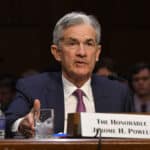
With Emergency Declaration, Mass. Adopts New Virus Strategy
Gov. Charlie Baker declared a state of emergency around the coronavirus outbreak in Massachusetts on Tuesday and outlined new protocols for state employees.

Gov. Charlie Baker declared a state of emergency around the coronavirus outbreak in Massachusetts on Tuesday and outlined new protocols for state employees.

A new survey from Fannie Mae has found that, despite the coronavius outbreak in countries around the world, a majority of Americans in February thought it was still a good time to buy a house.

Companies are restricting business travel, implementing work-from-home policies and switching to virtual conferences to limit the spread of the coronavirus.

The Federal Financial Institutions Examination Council (FFIEC) released guidance on March 6 to help financial institutions minimize the potential effects of a pandemic as concerns continue about the spread of the coronavirus.
America is on edge as COVID-19 infections pop up in more and more places.

Suddenly, the most serious threat since the Great Recession looms over the hitherto-booming downtown Boston office market.

Amidst the COVID-19 outbreak, new recommendations for halting the spread of pathogens could become a model for the redesign of high-traffic buildings including hotels, office buildings and apartments to withstand its spread and that of potential future epidemics.
The lowest mortgage rates in 11 years have brought wannabe homebuyers off the bench and onto the playing field in droves. But low-cost mortgages don’t always help the market.

The Federal Reserve’s latest nationwide survey of business conditions has found that the coronavirus outbreak has begun to impact tourism and disrupt manufacturing chains in parts of the United States.

The Department of Public Health announced that testing at the state laboratory had identified a “presumptive positive” case of the illness known as COVID-19, in a Norfolk County woman in her 20s

Disruption to U.S. commercial real estate markets from the coronavirus outbreak will hit the hotel and retail industries hardest initially and cause supply chain disruptions that could affect the tech sector.

As stocks around the world tumble on worries about a fast-spreading virus, calls grow for rate cuts. But can central banks really fix this crisis as they have so many others?

If we get hit with anything like what we have seen from afar in China, there will be major disruptions to every facet of life, including businesses.
With the coronavirus spreading world-wide, President Donald Trump is laser-focused on the biggest threat it poses.

Public health officials in Massachusetts said Wednesday that they have been monitoring more than 600 people under self-quarantine in the state looking for possible symptoms of the COVID-19 coronavirus.

With outbreaks now emerging in Italy, South Korea and Iran, and U.S. health officials warning Tuesday it’s inevitable COVID-19 will spread more widely in America, how prepared is the country?

Federal Reserve officials were mostly optimistic about the U.S. and global economies last month, though they noted the risk posed by China’s viral outbreak and said they were ready to keep their benchmark interest rate at its current low level in the coming months.

Federal Reserve Chairman Jerome Powell says the U.S. economy appears durable with steady growth and unemployment near a half-century low but faces risks from the deadly virus in China and low labor force growth.